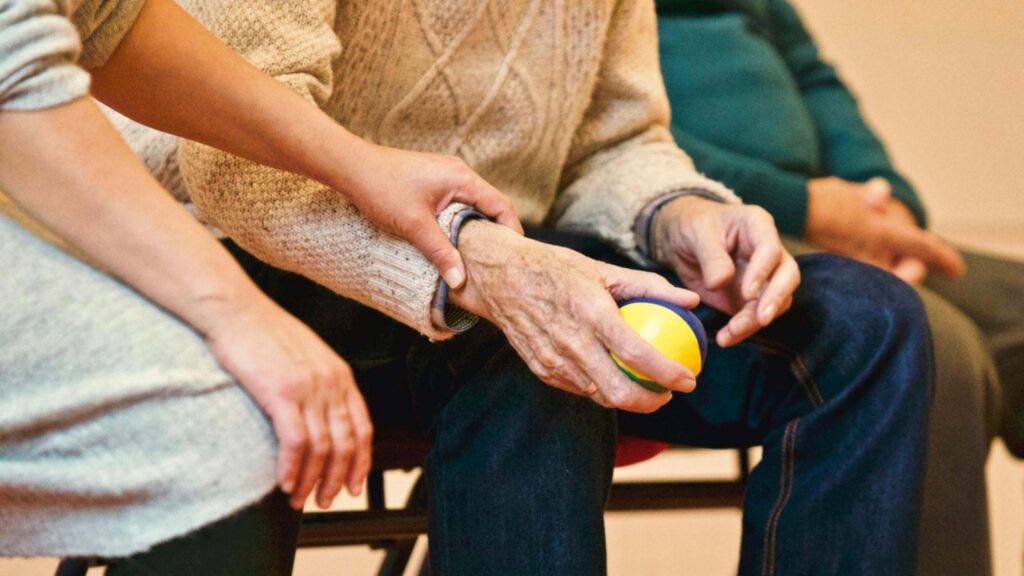- [email protected]
- Address placeholder, Country

When a loved one requires care in a nursing home, one of the biggest concerns is often how to cover the costs. Many people assume that next of kin, such as adult children or siblings, are automatically responsible for paying care home fees. However, this is not always the case in the UK. In this article, we’ll explore the topic of care home fees and the responsibilities of next of kin
The cost of care homes in the UK can be substantial, with average weekly fees ranging from £600 to over £1,000, depending on the location and type of care required. These fees cover accommodation, meals, and personal care services. In some cases, additional costs may apply for specialised medical care or luxurious amenities.
Scenario: Sarah’s mother, Alice, has been diagnosed with dementia and requires full-time care in a nursing home. Sarah is worried about how she will afford the weekly fees of £800, as her mother’s savings are limited.
The responsibility for paying care home fees primarily falls on the individual receiving care. If they have sufficient income or assets, they will be expected to self-fund their care. However, if their resources are limited, they may be eligible for financial support from their local authority or the NHS.
If an individual’s assets, including savings and property, are below a certain threshold (£23,250 in England), the local authority will conduct a financial assessment to determine the level of support they can provide. The local authority may cover some or all of the care home fees, depending on the individual’s income and assets.
Scenario: Alice’s savings and assets are valued at £20,000. After a financial assessment, the local authority agrees to contribute £400 per week towards her care home fees, leaving Sarah to pay the remaining £400.
In some cases, the NHS may cover care home fees if the individual has a complex medical condition that requires continuous healthcare. This funding, known as NHS Continuing Healthcare, is not means-tested and can cover the full cost of care.
Scenario: Alice’s dementia has progressed, and she now requires constant medical supervision. After an assessment, the NHS agrees to provide Continuing Healthcare funding, covering the full cost of her care home fees.

Contrary to popular belief, next of kin are not automatically responsible for paying care home fees in the UK. The responsibility lies with the individual receiving care, and their ability to pay is assessed based on their own financial situation, not that of their family members.
However, there are some circumstances where next of kin (not sure what is next of kin?) may become involved in the payment of care home fees:
If a next of kin signs a contract with the care home agreeing to act as a guarantor, they may be held liable for any unpaid fees. It’s crucial to carefully read and understand any contracts before signing to avoid unexpected financial obligations.
Scenario: Sarah signs a contract with the care home stating that she will act as a guarantor for her mother’s fees. If Alice’s assets deplete and she is unable to pay, Sarah will be responsible for covering the outstanding costs.
If an individual is eligible for local authority funding, but their preferred care home charges higher fees than the local authority is willing to pay, next of kin may choose to pay a “top-up” fee to cover the difference. This is a voluntary arrangement and not a legal requirement.
Scenario: The local authority agrees to pay £600 per week for Alice’s care, but Sarah wants her mother to stay in a care home that charges £800 per week. Sarah decides to pay the additional £200 per week as a top-up fee.
If an individual intentionally gives away assets or transfers ownership to avoid paying care home fees, the local authority may deem this as “deprivation of assets” and still assess the individual as if they owned those assets. Next of kin should be cautious about accepting large gifts or transfers of ownership from a loved one who may require care in the future.
Scenario: Before entering the care home, Alice transfers ownership of her home to Sarah to avoid it being included in the financial assessment. The local authority determines this to be a deliberate deprivation of assets and includes the value of the property when assessing Alice’s ability to pay for care.

A trust is a legal arrangement where you (the settlor) give assets, such as property or money, to a trustee (what are trustees?) to hold for the benefit of your chosen beneficiaries. The key points about trusts are:
If you put your home in a trust and then go into a care home, you’ll no longer own your home. It wouldn’t be classed as an asset you own during a financial assessment, so in theory, it can’t be used to pay for your care home fees.
However, there’s no guarantee using a trust will mean your property is exempt. If your local council believes you put your property into trust deliberately to avoid care fees, they may say you have deprived yourself of assets. Under the deprivation of assets rules, they can treat you as still owning the property and include its value in the means test.
Timing is crucial – if you transfer your home into a trust at a time when you are fit and healthy and there is no foreseeable need for care, it may be harder for the council to prove deliberate deprivation. However, there is no fixed look-back period or time limit. The council can consider the intention behind gifts or transfers into trust made at any time, even many years ago.
Some argue that creating a lifetime trust to hold your property while you are still relatively young and healthy can help avoid it being treated as deliberate deprivation of assets if care is needed many years later. The idea is that it is harder to prove you set up the trust primarily to avoid care fees if you do it well in advance of needing care.
However, this is a risky and uncertain approach. There are no guarantees it will work, as the council (click this link to find your local council) can still assess your intention in setting up the trust, no matter how long ago it was. You also need to be willing to give up ownership and control of your property to the trustees, which many people are understandably reluctant to do.
Additionally, putting your home into trust can have other unintended consequences, such as potential capital gains and inheritance tax charges, difficulties with mortgages and equity release, and loss of control if you fall out with the trustees. The costs of setting up and administering a trust can also be high.
Scenario: At age 60, while in good health, John and his wife Mary put their home into a lifetime trust for their children. Twenty years later, John needs to go into a care home. The local authority assesses John’s finances and determines that the transfer of the property into trust was a deliberate deprivation of assets. They include the value of the property in the means test, despite it being in trust for two decades.
Changing the way you own your property from joint tenants to tenants in common can be a useful strategy to help protect your home from being used to pay for care home fees. When a property is owned as joint tenants, each owner has an equal share and if one owner dies, their share automatically passes to the surviving owner. This means if the surviving owner then needs to go into care, the whole property could be included in the means test for care fees.
However, if the property is owned as tenants in common, each owner has a distinct share which they can leave to someone else in their will. By severing the joint tenancy and becoming tenants in common, couples can leave their share of the property to their children or a trust in their will. Then if the surviving spouse needs care, only their share of the property is included in the means test, protecting the rest from being used for care fees.
It’s important to note that this strategy is not foolproof. If the tenancy change is deemed to be deliberate deprivation of assets to avoid care fees, the whole property may still be included in the means test. The key is to make the change well in advance of any care needs arising, as part of a broader estate planning process. Seeking professional advice from a solicitor specialising in this area is always recommended to ensure you understand the full implications before making any decisions.
Scenario: Michael and Susan own their home as joint tenants. On the advice of their solicitor, they sever the joint tenancy and become tenants in common, each owning a 50% share. In their wills, they leave their respective shares to their adult children. Ten years later, Michael passes away, and his 50% share passes to the children. When Susan needs to go into a care home, only her 50% share is considered in the financial assessment.
Ownership shares
Right of survivorship
Selling ownership
Scenario: Siblings Emma and Jack inherit their parents’ home as joint tenants. Emma wants to sell the property, but Jack wants to keep it. As joint tenants, Emma cannot sell her share without Jack’s agreement. If they held the property as tenants in common, Emma could sell her share independently.
Navigating the complexities of care home fees and funding options can be challenging. It’s advisable to seek professional advice from a financial advisor or solicitor specialising in elder care planning. They can help assess your individual circumstances and provide guidance on the best course of action.
A company like Xwills.com can provide valuable assistance in this area. Their team of experts can help you understand the implications of different property ownership arrangements, such as joint tenancy and tenancy in common, and how they can impact care home fees. They can also advise on the use of trusts and other estate planning tools to protect your assets and ensure your wishes are carried out.
By seeking professional advice early, you can make informed decisions and put plans in place to manage the potential costs of long-term care. This can provide peace of mind for you and your loved ones, knowing that you have taken steps to prepare for the future.

In summary, next of kin are not automatically responsible for paying care home fees in the UK. The responsibility lies primarily with the individual receiving care, and their ability to pay is assessed based on their own financial situation. Local authorities and the NHS may provide financial support for those with limited resources.
However, next of kin should be aware of potential situations where they may become involved in the payment of care home fees, such as signing guarantor agreements or voluntarily paying top-up fees. Strategies like putting your home into a trust or changing property ownership to tenants in common can offer some protection, but they are not without risks and potential drawbacks.
Planning ahead and seeking professional advice from a company like Xwills.com can help families prepare for the financial implications of long-term care and ensure their loved ones receive the care they need without facing unexpected financial burdens.
By understanding the rules surrounding care home fees and the responsibilities of next of kin, families can make informed decisions and navigate this complex landscape with greater confidence and peace of mind.
The information provided in this article on what you should never put in your will is for general informational purposes only and does not constitute formal legal advice. While we strive to provide accurate and up-to-date information, laws and regulations may change over time. For your specific situation, it is always best to consult with a qualified professional who specialises in wills and estate planning. They can guide you through the process of properly drafting and executing your will, ensuring it is legally valid and tailored to your unique needs. Services like XWills.com offer expert will writing assistance from licensed professionals. Speaking with them directly will give you the personalised attention and formal legal guidance needed to achieve your estate planning goals and protect your legacy.

Co-Founder, CEO and Senior Will Writer at Xwills.com
Andrew Walters is the co-founder and CEO of Xwills.com, an estate planning firm that combines technology with personalised customer service to elevate the will writing experience. As a full member of the Society of Will Writers, Andrew is committed to upholding the highest professional standards in the field.
Driven by a passion for providing comprehensive support to clients, Andrew pursued formal qualifications in will writing and estate planning. This journey led to the establishment of Xwills, where he and his team fill a gap in the market by offering a tailored alternative to online-only will writing services.
At Xwills, Andrew ensures that each client receives the time and attention needed to understand their specific requirements. He strongly believes that something as important as writing a will should not be rushed or done without expert guidance.
As a member of the Society of Will Writers, Andrew adheres to their code of practise and continues to expand his knowledge through annual training.
His expertise, combined with Xwills’ commitment to customer service, positions him as a trusted resource for those seeking to protect their legacy and provide for their loved ones.
With his dedication to professionalism and personalised service, Andrew Walters is setting a new standard in the estate planning industry.
0208 064 3945
Tilsop Farm,
Nash,
Ludlow,
Shropshire
SY8 3AX